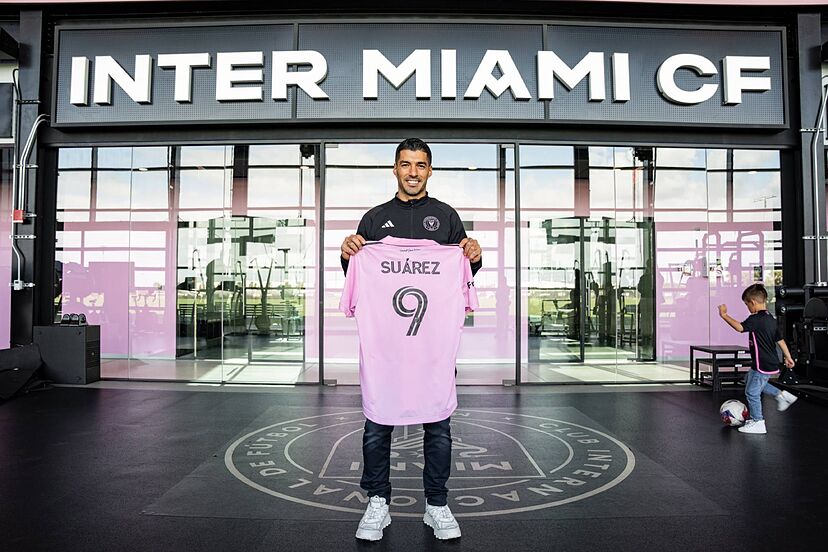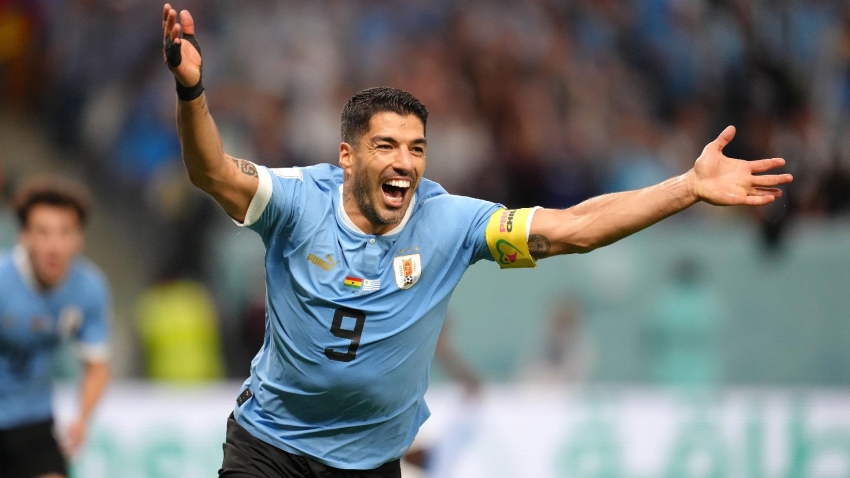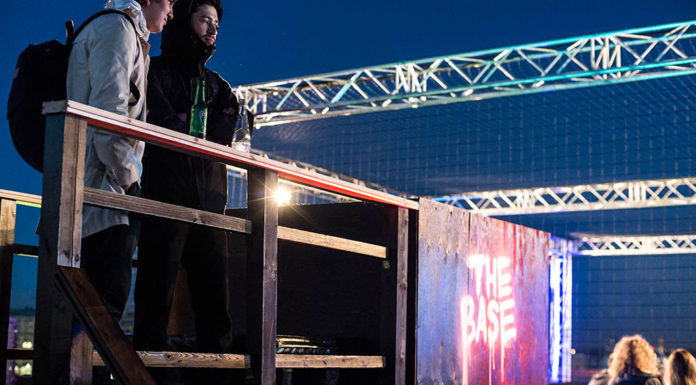Luis Suárez is the signing of the MLS offseason, yet he’s somehow still fallen under the radar. The 37-year-old Uruguayan striker will be pivotal on many fronts for MLS and Inter Miami, despite what the press in his home country thinks.
Luis Suárez is one of the best strikers of all-time, with a career that is defined by goals, trophies, and an insatiable competitive spirit. Not only that, but the man born in Salto is the best player Uruguay has ever produced.
That in itself is a bold statement, as the country has had many players of world class level from José Nasazzi and Héctor Scarone, to the likes of Enzo Francescoli all the way to contemporaries like Edinson Cavani, Diego Forlán, and Federico Valverde.
Yet, Suárez stands well above those players. He is his nation’s all-time leading scorer with 68 goals in 138 caps, and in four World Cups the striker has seven goals. Suárez’s club career is unmatched as well. After starting in Nacional, he made the jump to Groningen at only 19, and would find himself at Ajax one season later. Lucho’s career took off from there — Liverpool, Barcelona, Atlético Madrid, a quick curtain call with Nacional, a player-of-the-season year with Grêmio, and now a long-awaited move to Major League Soccer.
Suárez’s total accolades with club and country account for 24 championships, making him one of MLS’ most decorated players of all time. Despite his knee issues, Suárez is still a capable striker, and maybe even the best in all of MLS on paper.
Time catches up with us all however, and Suárez is no different. He’s visibly slower and not as explosive, relying more on service — the skilled players he had around him at Grêmio played to his strengths. Suárez’s short time at Inter Miami so far has shown an indication that he will have to be more involved. During the club’s ill-fated preseason tour, it generated very little in way of attack and was a complete disaster defensively.
Still there was Suárez, as competitive as ever, raising his hands and asking for the ball trying to link up with his teammates, who even at this stage of his career, are well below his level.
For Eduardo Rivas of Telenoche Canal 4, Suárez’s move to MLS is a way of slowing down and getting a final chance to play with his friend Lionel Messi.
“When compared to the Brazilian league, the level of MLS is less, but he gets a chance to live in a different world, with a little less stress,” Rivas said.
These words hit hard for Inter Miami supporters, who can count on one hand the number of key people who came to their club for “less stress.” Sergio Busquets, Jordi Alba, Messi, and even head coach Tata Martino have all spoken about trying to calm things down at the end of their careers. The problem is that Inter Miami is now the flagship team of MLS, and have a schedule filled with cup games, home games, and travel.
If these five men wanted less stress, MLS is most certainly not that place.
Getting the Best Out of Suárez

During his team’s horrific preseason tour, Martino stated he did not feel the pressure of the expectations to win the 2024 MLS Cup.
What started with a 0-0 draw to El Salvador devolved into a decimation in the Middle East and Asia, where the club has looked absent both offensively and defensively. Despite scoring seven goals in its first two matches, Martino’s side was shut out in the remaining four. A pitiful output for a team built to win now and has only won one game since September 2023.
If the preseason showed anything, it’s that Inter Miami needs help and fast to make Messi and Suárez work. The club has quickly gone off to try and sign Argentine Federico Redondo, a pivot that plays in the same position as Busquets, who respectfully has been a major liability at Inter Miami. Out of the four major stars, he has looked the most winded, out of sorts, and so far, worse than he did last season.
I'm going to watch every Inter Miami game if they Somehow Re-unite Messi – Alba – Suarez – Busquets. pic.twitter.com/KI7AQpZC5R
— ACE (fan) (@FCB_ACEE) July 18, 2023
Messi is Messi, Suárez looks lively, and Alba surprisingly is the player who has most adapted to the style of MLS. Redondo would provide something Martino’s team vastly needs: a runner and passer. With Messi and Suárez picking their spots, Redondo, Robert Taylor, and Diego Gómez, who looked fantastic in his Olympic qualifying campaign with Paraguay, could be key.
If Martino will rely on the 4-3-3, he will need not only speed from his wingers but also precision in their passing to Suárez, who always looks to play a sort of offside trap, exploiting defenders preoccupied with the oncoming attack.
When Martino tried to play with five at the back for a 5-3-2, his team gave up 10 goals in two matches. And despite scoring in one of those games, Suárez looked very contained.
Despite the chatter of “less stress,” Suárez needs his move to Miami to work, if for anything to still be on the mind of national team manager Marcelo Bielsa, who has already anointed Darwin Núñez as his go-to striker. In Bielsa’s eyes, Suárez is an experienced leader who can come in and be dangerous, but that was the Grêmio version of the striker. If Inter Miami and Suárez get off to a bad start, it may force Bielsa to look elsewhere.
For Rivas, Suárez’s move to Inter Miami is a reminder that it’s the end game for Uruguay’s greatest ever player in a La Celeste kit.
“Suárez is fighting against time,” Rivas said. “Yes there are players from MLS that are called into Uruguay, but they are much younger and have a bigger upside. Suárez knows that for many reasons, his time with the national team is dwindling.
“In the long term, Suárez can’t really project any further than September (including trying to play the Copa America). It really comes down to age and his form (if he will still be with Uruguay).”
Luis Suárez Will Bring It

Despite his age and the ills that Inter Miami has, Suárez is a competitor. On a team still struggling to come to terms that just making the playoffs or playing .500 ball won’t be enough, Suárez along with Messi could change the culture for Inter Miami.
During one of the club’s preseason games, Suárez was talking to youngster David Ruiz, about opening himself up and finding spaces. A born leader and much more vocal than Messi on the field, Suárez could be a major link between Miami’s homegrown talent and international stars.
It also helps that Suárez knows four languages and could be pivotal in getting not only Messi’s message to his teammates, but Martino’s as well, and more importantly Suárez could get the rest of the team’s thoughts to their superstars. In many cases they are playing with teammates who make up to five times less than Inter Miami’s superstars do.
Suárez will be the one to watch in MLS this season, a league that continues to sign many Uruguayan players. In Uruguay, MLS has become a league of destination, or as Rivas says, “It’s a new player, a chance to earn money at a young age and make a major jump to Europe.”
No one can deny that Suárez and Messi are a major boost for Major League Soccer, and now it’s finally time for Inter Miami and Martino to feel that stress and make these two extraordinary generational players work together once again.








